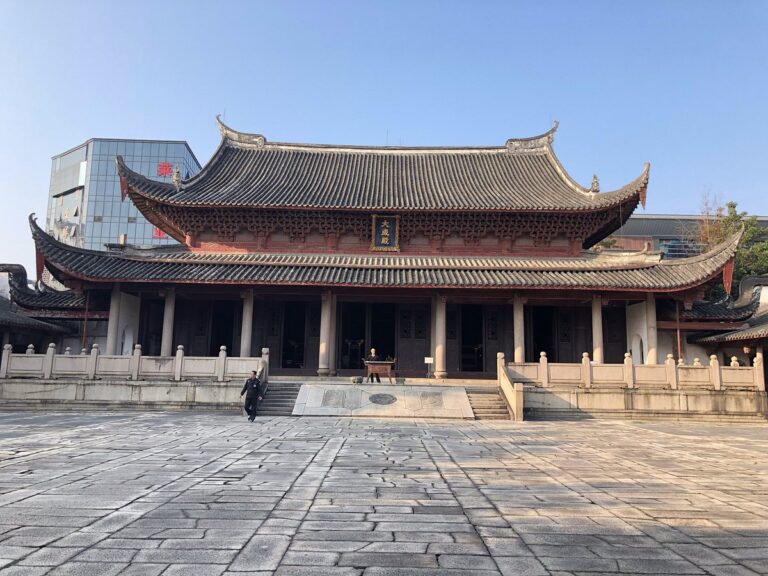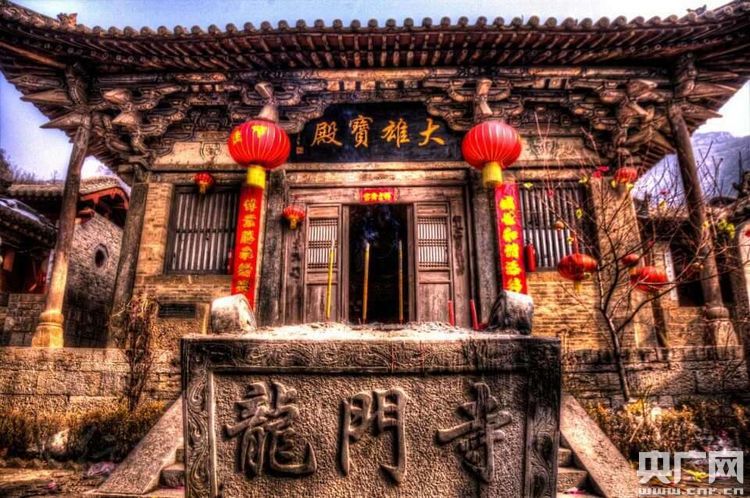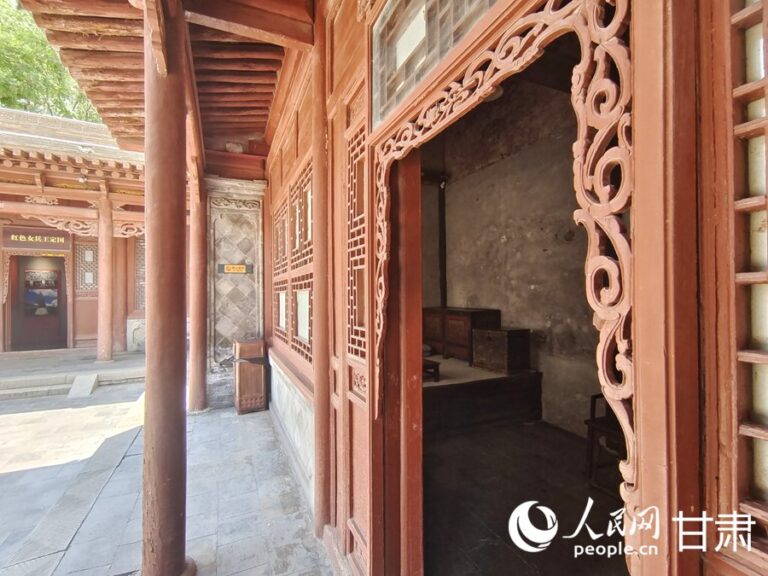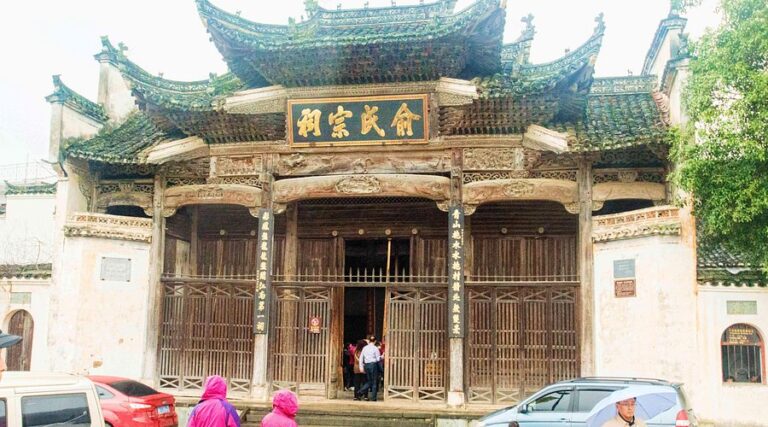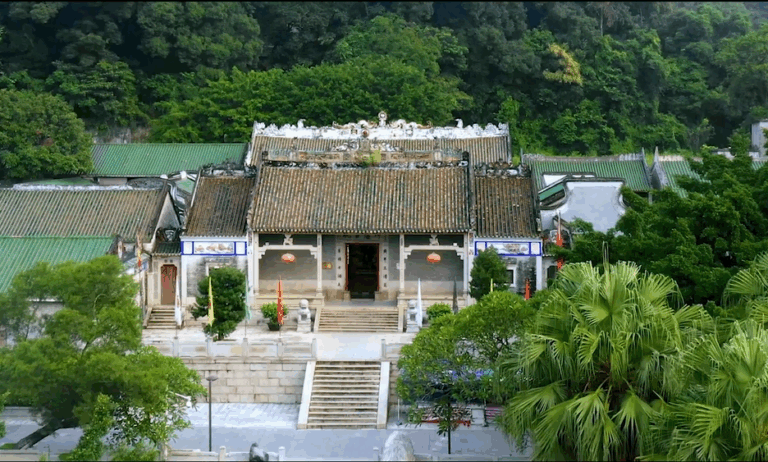Discover the Historic Qinhuangdao Yaohua Glass Factory Site: A Journey Through Innovation
An Essential Guide to Visiting Qinhuangdao Yaohua Glass Factory Site
In This Guide
- An Essential Guide to Visiting Qinhuangdao Yaohua Glass Factory Site
- The Rich History of Qinhuangdao Yaohua Glass Factory Site
- Main Highlights: What to See at Qinhuangdao Yaohua Glass Factory Site
- Planning Your Visit: A Practical Guide
- Tickets, Hours, and Booking
- How to Get There
- Local Cuisine and Accommodation
- Frequently Asked Questions
- Final Thoughts on Your Trip
Nestled along the picturesque coastline of Qinhuangdao, the Yaohua Glass Factory Site stands as a testament to China’s industrial heritage and the evolution of its glass manufacturing sector. Established in 1922, this historic site marked the birth of the country’s first mechanized flat glass production, set against a backdrop of collaboration between Chinese entrepreneurs and Belgian investors. The factory quickly became a beacon of innovation, exceeding its production targets in its inaugural year and paving the way for what would later be dubbed “China’s Glass City.”
Today, the remnants of the Yaohua Glass Factory are preserved as a cultural landmark, recognized as a provincial-level heritage site since 2008. Visitors to this site not only witness the architectural echoes of a bygone era—highlighted by its distinctive German-style water tower and Gothic-style electric room—but also gain insight into the pivotal role this factory played in shaping the glass industry in northern China.
As you explore the site, you’ll uncover a narrative that intertwines industrial progress with cultural evolution, culminating in the establishment of the Qinhuangdao Glass Museum. This museum, built on the factory’s original grounds, serves as a vibrant repository of glassmaking history and artistry, offering an immersive experience that showcases the materials, technologies, and craftsmanship that have defined the glass industry over the decades. Join us on a journey through time at the Yaohua Glass Factory Site, where history and innovation come together to inspire future generations.
The Rich History of Qinhuangdao Yaohua Glass Factory Site
The Qinhuangdao Yaohua Glass Factory Site, known as the birthplace of China’s glass industry, holds a significant place in the nation’s industrial history. Established in 1922 through a joint venture between Chinese and Belgian investors, it marked the advent of modern glass manufacturing in northern China. The factory was officially known as the Qinhuangdao Yaohua Machinery Manufacturing Glass Co., Ltd., and it quickly gained recognition for its production capabilities.
In its inaugural year, the factory exceeded its design capacity, producing an impressive 160,000 standard cases of glass, all while maintaining high quality standards. This early success solidified Yaohua’s status as a leader in the Chinese glass industry and earned Qinhuangdao the title of “Glass City.” The factory was not only a commercial success but also a pioneering force that laid the foundation for the development of glass manufacturing techniques in the region.
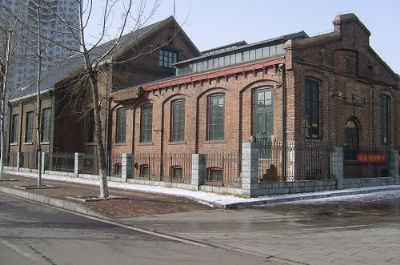
Qinhuangdao Yaohua Glass Factory Site.
The factory’s establishment is closely linked to the influential industrialist Zhou Xuexi, often referred to as the “Giants of Northern Industry” in the early Republic of China. Alongside contemporaries like Zhang Jian, Zhou played a crucial role in the rise of modern industries in China. His vision and efforts were instrumental in positioning the Yaohua Glass Factory at the forefront of the glass industry.
Despite its achievements, the factory faced challenges over the decades, leading to its relocation in 2001. To preserve the historical significance of the site, the local government decided to maintain parts of the original factory buildings and transform them into the Qinhuangdao Glass Museum. This initiative aimed to document and celebrate the factory’s legacy, showcasing the evolution of glass manufacturing in China and the artistry involved in glass production.
In October 2008, the site was designated as a provincial-level cultural heritage site by the Hebei Provincial Government, further underscoring its historical importance. Today, the Qinhuangdao Glass Museum not only serves as a repository of glass artifacts but also as an educational platform, illustrating the rich history and cultural significance of glass in Chinese society. Visitors can explore various exhibitions that highlight ancient glass production techniques, the cradle of China’s glass industry, contemporary glass manufacturing, and the enchanting world of glass art.
Through its historical journey, the Yaohua Glass Factory Site stands as a testament to China’s industrialization and innovation, offering a glimpse into the past while inspiring future generations.
Main Highlights: What to See at Qinhuangdao Yaohua Glass Factory Site
The Qinhuangdao Yaohua Glass Factory Site is a significant cultural and historical landmark that serves as a testament to China’s industrial evolution. Established in 1922 through a collaboration between Chinese and Belgian investors, it played a pivotal role in the development of the glass manufacturing industry in northern China. Here are the main highlights of this remarkable site:
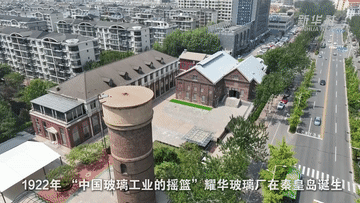
Qinhuangdao Yaohua Glass Factory Site.
-
Historical Significance: As a key player in the early modernization of Chinese industry, the Yaohua Glass Factory was hailed as the birthplace of China’s glass manufacturing sector. It was the first facility to produce mechanized flat glass in the country, setting standards for quality that propelled the industry forward.
-
Architectural Heritage: The site features a blend of architectural styles, including German water towers and French Gothic electric light buildings, which provide a glimpse into the industrial aesthetics of the early 20th century. These structures are preserved as part of the factory’s legacy, showcasing the building techniques and styles of the era.
-
Cultural Hub: The Qinhuangdao Glass Museum, constructed on the factory grounds, is China’s first state-owned glass-themed museum. It encompasses an area of approximately 11.25 acres and includes exhibition spaces dedicated to ancient glassmaking, the growth of the Chinese glass industry, contemporary glass production, and the artistry of glass craftsmanship.
-
Interactive Exhibits: Visitors to the museum can engage with over a thousand artifacts that narrate the story of glass production in China—from ancient techniques to modern advancements. The exhibits are thoughtfully curated to highlight the cultural and artistic significance of glass, making it an educational experience for all ages.
-
Recognition and Preservation: In 2008, the site was designated as a protected cultural relic by the Hebei Provincial Government, underscoring its importance in Chinese industrial history. The preservation efforts ensure that future generations can appreciate this industrial heritage.
-
Nearby Attractions: The factory site is conveniently located near various other attractions, including the Qinhuangdao Forest Sports Park and the ancient Qinhuangdao Old Road, making it an ideal stop for those exploring the region’s rich history and natural beauty.
Visiting the Qinhuangdao Yaohua Glass Factory Site offers a unique opportunity to explore the intersection of industry, culture, and art in China’s historical narrative, leaving visitors with a deeper understanding of the country’s industrial heritage.
Planning Your Visit: A Practical Guide
Practical Guide to Visiting the Qinhuangdao Yaohua Glass Factory Site
Visiting the Qinhuangdao Yaohua Glass Factory Site offers a unique glimpse into the historical significance of glass manufacturing in China. Here’s a practical guide to help you make the most of your visit.
Getting There
Location:
The Yaohua Glass Factory Site is located in the Haigang District of Qinhuangdao, Hebei Province. It is easily accessible via public transport, taxis, or personal vehicles.
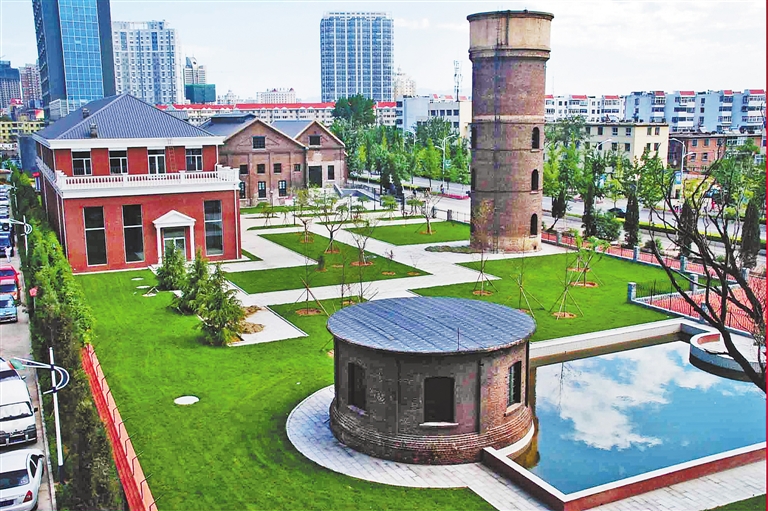
Qinhuangdao Yaohua Glass Factory Site.
Transportation Options:
– By Train: Qinhuangdao Railway Station is well-connected to major cities, including Beijing and Tianjin. From the station, you can take a taxi or a local bus to the factory site.
– By Bus: Several local buses run routes that pass near the factory. Check local transport schedules for specifics.
– By Car: If you are driving, take the G18 highway to Qinhuangdao. Parking is available near the site.
Opening Hours
The site, which includes the newly established Qinhuangdao Glass Museum, typically operates from 9:00 AM to 5:00 PM. It’s advisable to check for any variations in hours, especially during public holidays.
Admission Fees
Entry to the Qinhuangdao Glass Museum is free of charge. This makes it a budget-friendly option for travelers interested in industrial history and glass artistry.
What to Expect
The Yaohua Glass Factory Site is rich in history, having been established in 1922 as a joint venture between Chinese and Belgian interests. It is known as the birthplace of China’s modern glass industry, producing the first mechanized flat glass in the country.
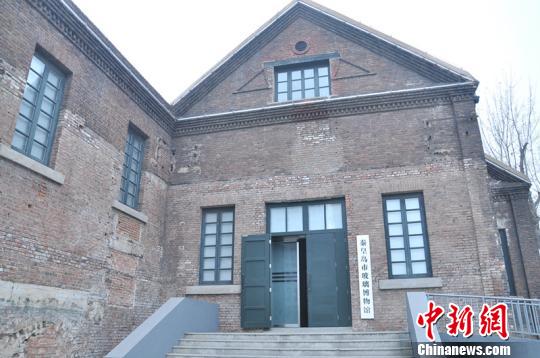
Qinhuangdao Yaohua Glass Factory Site.
Exhibits:
– Historical Displays: Visitors can explore the original factory structures, such as the German-style water tower and the Gothic-style electric light room, which showcase the architectural styles of the early 20th century.
– Glass Museum Sections: The museum is divided into four main sections:
1. Ancient Glass and its Evolution
2. The Cradle of the Chinese Glass Industry
3. Contemporary Glass Manufacturing in China
4. The Fascinating World of Glass Art
Interactive Experiences:
Engage with various glass-making techniques through live demonstrations, and don’t miss the chance to see traditional glass art being crafted.
Nearby Attractions
While visiting the Yaohua Glass Factory Site, consider exploring these nearby sites:
– Qinhuangdao Forest Sports Park (2 km away): A great spot for outdoor activities and enjoying nature.
– Qinhuang Island Underwater World (5 km away): A fun family-friendly attraction featuring marine life exhibits.
– Qinhuangdao Historical Sites: Including ancient paths and cultural landmarks that reflect the city’s rich heritage.
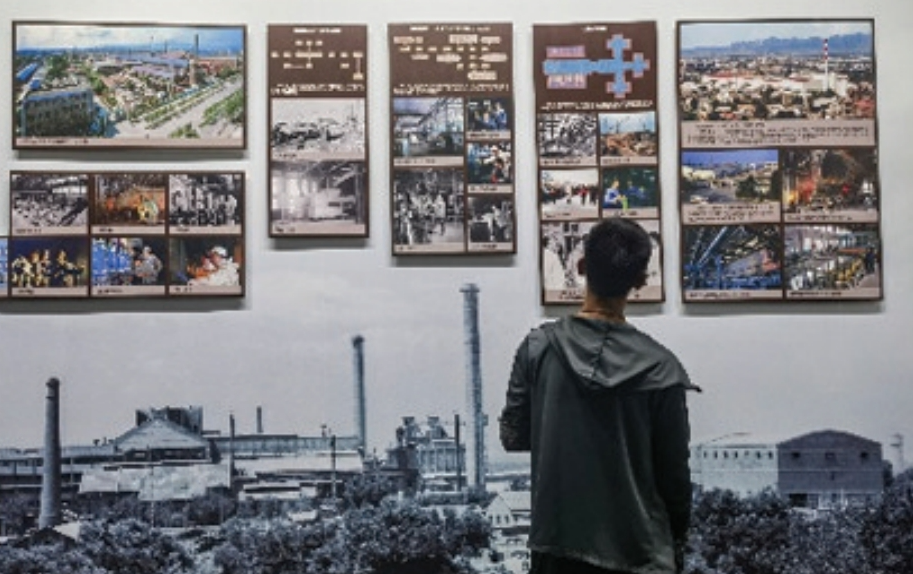
Qinhuangdao Yaohua Glass Factory Site.
Tips for Visitors
- Photography: The site offers numerous picturesque spots. Ensure you have your camera ready to capture both the historical buildings and the intricate glass art.
- Guided Tours: If you want a deeper understanding of the site’s history and significance, consider joining a guided tour.
- Plan Ahead: Given the popularity of the museum, especially during weekends and holidays, arriving early can help you avoid crowds.
Accessibility
The site is wheelchair accessible, with paths designed to accommodate visitors with mobility challenges. It’s recommended to check in advance for any additional assistance if needed.
Conclusion
The Qinhuangdao Yaohua Glass Factory Site is not just a museum but a celebration of industrial heritage and artistry in glass. Whether you’re an enthusiast of history, art, or technology, this site promises an enlightening experience that combines learning with visual delight. Enjoy your visit!
Tickets, Hours, and Booking
When planning your visit to the Qinhuangdao Yaohua Glass Factory Site, it’s important to know the ticketing details to ensure a smooth experience.
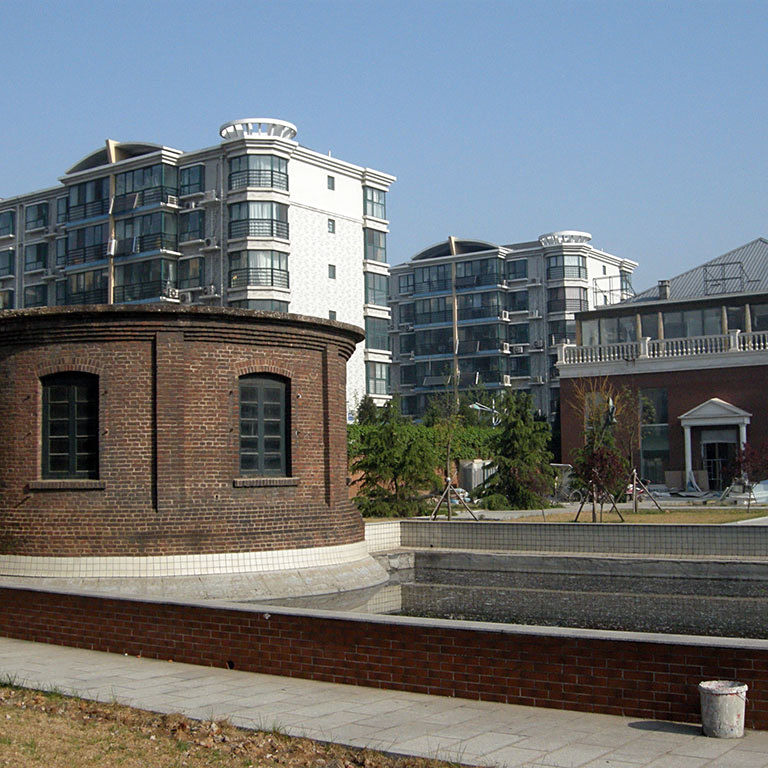
Qinhuangdao Yaohua Glass Factory Site.
Admission Details
Ticket Price:
Admission to the Qinhuangdao Glass Museum, which is located on the historic site of the Yaohua Glass Factory, is free of charge. This provides a wonderful opportunity for both locals and tourists to explore the rich history of glass manufacturing in China without any financial barrier.
Location:
The museum is situated in Haigang District, Qinhuangdao City, Hebei Province. It is easily accessible and well-signposted, making it convenient for visitors to locate.
Opening Hours:
The museum is open daily, allowing ample time for exploration. Be sure to check local listings or the museum’s official announcements for any special hours or holiday schedules.
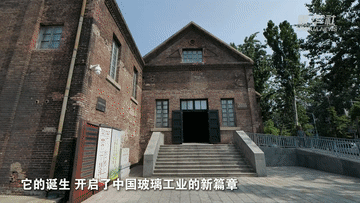
Qinhuangdao Yaohua Glass Factory Site.
Additional Information
While entry to the museum is free, consider budgeting for transportation to and from the site as well as any souvenirs or refreshments you may wish to purchase during your visit. The museum features a variety of exhibitions that highlight the evolution of glassmaking and its artistic applications, making it a must-visit for both history enthusiasts and art lovers alike.
Getting There
Public transport options are available, and local taxis or rideshare services can provide easy access from various parts of Qinhuangdao. If you plan to drive, check for parking availability near the museum.
By taking advantage of the free admission, you can delve into the fascinating world of glass art and industry at this historic site, making it a valuable addition to your itinerary in Qinhuangdao.
How to Get There
When planning a visit to the Qinhuangdao Yaohua Glass Factory Site, understanding your transportation options is crucial for a seamless and enjoyable experience. Situated in the coastal city of Qinhuangdao, Hebei Province, this historical site is well-connected through various modes of transportation, making it accessible to both local and international travelers.
Getting There
By Air
The nearest airport to the Yaohua Glass Factory Site is Qinhuangdao Beidaihe Airport (BPE), located approximately 30 kilometers away. This airport offers domestic flights from major cities such as Beijing and Shanghai. From the airport, you can take a taxi or arrange for a shuttle service to reach the factory site.
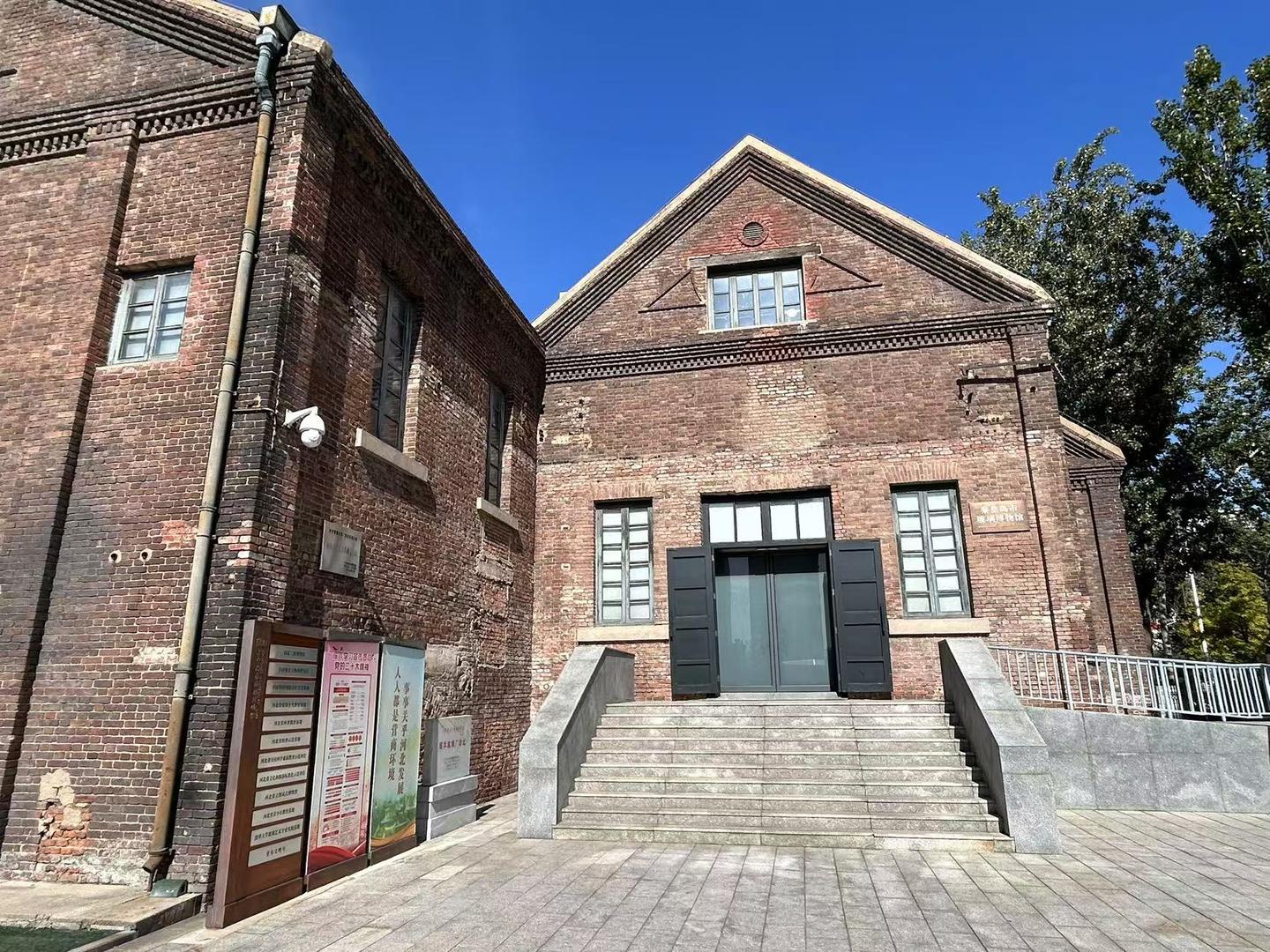
Qinhuangdao Yaohua Glass Factory Site.
By Train
Qinhuangdao has a well-developed railway network. The Qinhuangdao Railway Station is the main station, providing high-speed and regular train services to and from major cities, including Beijing, Tianjin, and Shijiazhuang. Upon arrival at the station, you can take a taxi or use public buses to get to the Yaohua Glass Factory Site, which is about 5 kilometers away.
By Bus
Long-distance buses from various cities in Hebei and neighboring provinces frequently service Qinhuangdao. The main bus station in Qinhuangdao connects to numerous destinations. Once in the city, local buses can take you closer to the factory site. Be sure to check local bus schedules for the most accurate information.
By Taxi or Ride-Sharing
Taxis are readily available throughout Qinhuangdao, and they are a convenient option for reaching the Yaohua Glass Factory Site. Alternatively, ride-sharing apps are also operational in the city, providing a modern and often more comfortable way to travel.
Local Transportation
Once you arrive at the Yaohua Glass Factory Site, the surrounding area is pedestrian-friendly, allowing for easy exploration on foot. Should you wish to visit nearby attractions such as the Qinhuangdao Glass Museum or other local sites, taxis and local buses provide efficient transportation options.
For those who prefer a more immersive experience, consider renting a bicycle. Several rental services are available throughout Qinhuangdao, and cycling can be a delightful way to see the city and its coastal scenery.
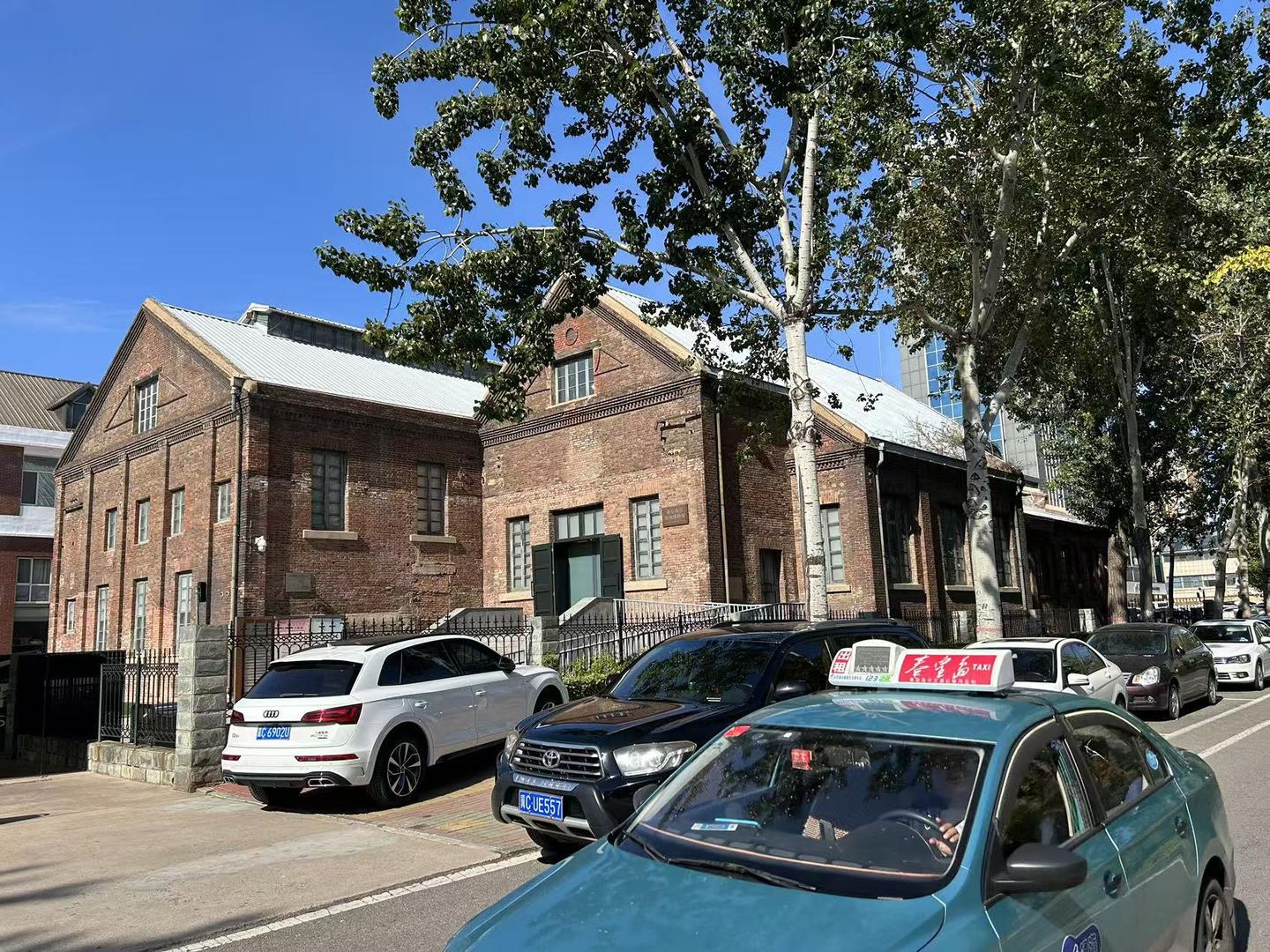
Qinhuangdao Yaohua Glass Factory Site.
Tips for Travelers
- Language Barrier: While transportation staff in major cities may speak some English, it’s advisable to have your destination written in Chinese to show taxi drivers or bus staff.
- Local Currency: Ensure you have sufficient Chinese Yuan (CNY) for transportation fares, as not all taxis accept credit cards.
- Peak Hours: Be mindful of peak commuting hours, especially during festivals or weekends, as public transport can become crowded.
By taking advantage of these transportation options, you can enhance your visit to the Qinhuangdao Yaohua Glass Factory Site and fully appreciate the rich history and cultural significance of this remarkable location.
Local Cuisine and Accommodation
Visiting the historic Yaohua Glass Factory Site in Qinhuangdao offers a unique glimpse into China’s industrial past, and it also provides opportunities to indulge in local cuisine and find comfortable accommodations nearby.
Culinary Delights Near Yaohua Glass Factory Site
When it comes to food, Qinhuangdao’s culinary scene is as rich and diverse as its history. The city is known for its seafood given its coastal location, and you’ll find a variety of restaurants serving fresh catches from the Bohai Sea. Here are some dining options to consider:
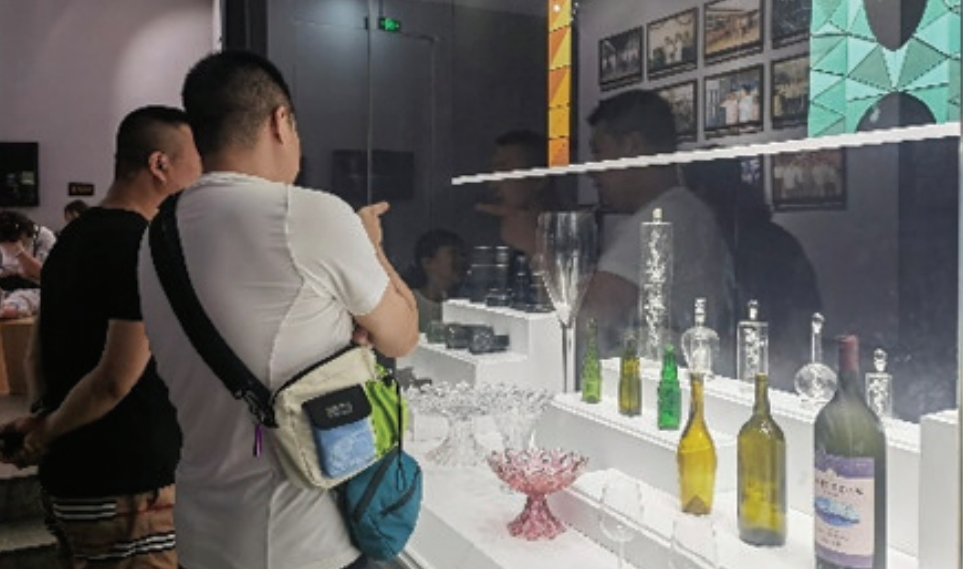
Qinhuangdao Yaohua Glass Factory Site.
-
Seafood Shacks: For an authentic experience, head to one of the local seafood shacks. Here, you can enjoy dishes like grilled squid, steamed crabs, and fried fish, all prepared with local spices and served with dipping sauces.
-
Local Specialties: Don’t miss trying Qinhuangdao-style fried rice or stir-fried clams with garlic. These dishes reflect the region’s culinary heritage and are a must-try for any food enthusiast.
-
Street Food: If you’re in the mood for a quick bite, explore the street food vendors near the Glass Museum. Popular options include jiaozi (dumplings), baozi (steamed buns), and jianbing (Chinese crepes). These snacks are not only delicious but also very affordable.
-
Fine Dining: For a more upscale dining experience, consider restaurants such as Huanghe Restaurant or Seafood Pavilion. These venues offer a mix of traditional Chinese cuisine and modern dishes, providing a pleasant atmosphere for both families and couples.
Where to Stay
After a day of exploring, you’ll want a comfortable place to unwind. Here are some accommodation options ranging from budget to luxury:
-
Budget Hotels: If you’re traveling on a budget, consider staying at Qinhuangdao International Youth Hostel. This hostel offers clean dormitory-style accommodations and is a great place to meet fellow travelers. It’s conveniently located near public transport, making it easy to reach the Glass Factory Site.
-
Mid-Range Hotels: For those seeking more comfort, the Crowne Plaza Qinhuangdao Sea View is an excellent choice. Featuring modern amenities, a fitness center, and a stunning view of the sea, this hotel provides a perfect blend of comfort and convenience.
-
Luxury Options: If you prefer a more luxurious stay, look no further than the InterContinental Qinhuangdao. This upscale hotel boasts elegant rooms with breathtaking ocean views, fine dining options, and access to a private beach—ideal for a relaxing getaway.
-
Guesthouses and B&Bs: For a more homely feel, consider local guesthouses or B&Bs like Qinhuangdao Yujing Garden Hotel. These establishments often provide personalized service and a chance to experience local hospitality.
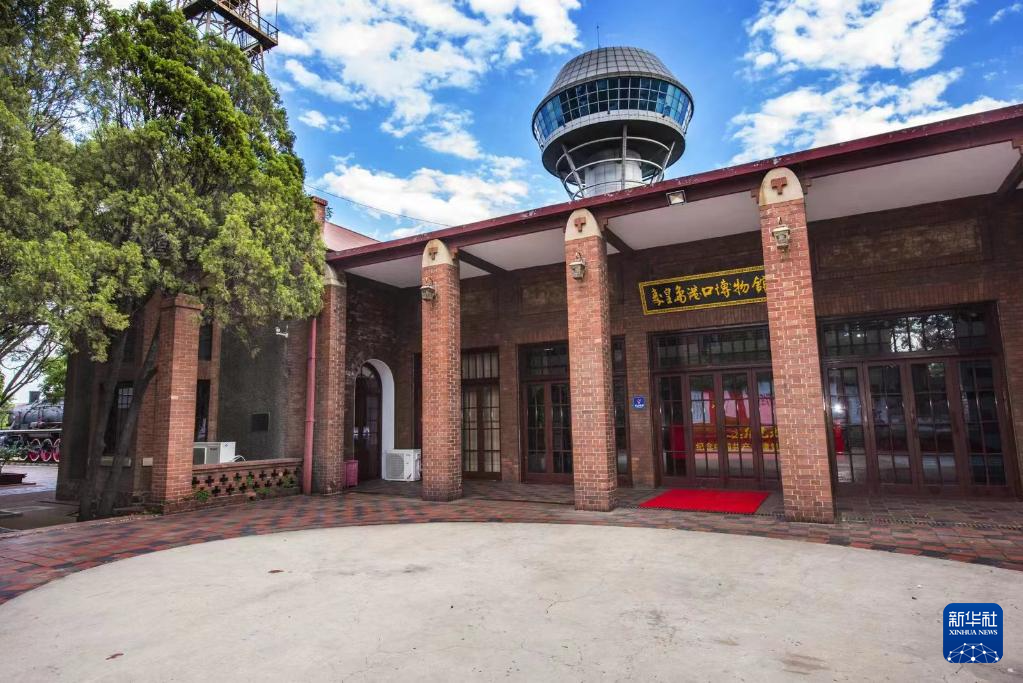
Qinhuangdao Yaohua Glass Factory Site.
With its rich history and vibrant food scene, a visit to the Yaohua Glass Factory Site in Qinhuangdao is sure to be both educational and enjoyable. Whether you’re savoring fresh seafood or resting in a cozy hotel, this coastal city has something for everyone.
Frequently Asked Questions
-
What is the Qinhuangdao Yaohua Glass Factory Site?
The Qinhuangdao Yaohua Glass Factory Site, established in 1922, is renowned as the birthplace of China’s glass manufacturing industry. It was a joint venture between Chinese and Belgian interests, becoming a pivotal point for the development of glass production in northern China. -
Why is the site significant?
The site is historically significant as it marked the introduction of mechanized glass production in China, producing its first plate glass and setting high standards for quality. In 2008, it was recognized as a provincial cultural heritage site by the Hebei Provincial Government. -
Is there a museum at the site?
Yes, the Qinhuangdao Glass Museum is located on the site. It showcases the history of glass production in China, including ancient glass artifacts, the evolution of the glass industry, contemporary glass art, and traditional glass-making techniques. -
What can visitors expect to see at the museum?
Visitors can explore four main exhibition areas: ancient glass and its development, the cradle of the Chinese glass industry, contemporary glass production, and the enchanting world of glass art. The museum features over a thousand artifacts, including both historical pieces and modern glass art. -
Are there guided tours available?
Yes, the museum often offers guided tours that provide in-depth insights into the exhibits and the historical significance of the glass production process. Check the museum’s official website or inquire at the entrance for the latest information on tour availability. -
What are the opening hours for the museum?
The Qinhuangdao Glass Museum typically operates from 9 AM to 5 PM, but it’s advisable to check their official website or contact them directly for the most current hours and any potential changes. -
Is there an admission fee?
Admission to the museum is generally free, making it accessible for all visitors. However, special exhibitions or events may have associated fees, so it’s best to verify before your visit. -
What other attractions are near the Yaohua Glass Factory Site?
The site is located near several other attractions, including the Qinhuangdao Ancient Path, Forest Sports Park, and the Qinhuangdao Sea and Sky Resort, all within a few kilometers, providing a diverse range of activities for visitors.
Final Thoughts on Your Trip
Visiting the Qinhuangdao Yaohua Glass Factory Site is not just an exploration of an industrial heritage; it is a journey through time that chronicles the evolution of China’s glass manufacturing industry. Established in 1922, the factory marks the birthplace of modern glass production in China, blending rich history with architectural beauty.
As you wander through the remnants of this once-thriving enterprise, the distinct styles of the early 20th century buildings—like the German-style water tower and French Gothic lighting house—tell a compelling story of innovation and cultural exchange. The site is now home to the Qinhuangdao Glass Museum, where visitors can delve into the fascinating world of glass, witnessing its transformation from ancient craftsmanship to contemporary artistry.
Whether you’re an industrial history enthusiast, an art lover, or simply a curious traveler, the Yaohua Glass Factory Site offers a unique glimpse into the past while inspiring appreciation for the artistry and ingenuity of glass-making. As you leave, you’ll carry with you not only the memories of stunning glassworks but also a deeper understanding of China’s industrial heritage—a true testament to resilience and creativity.
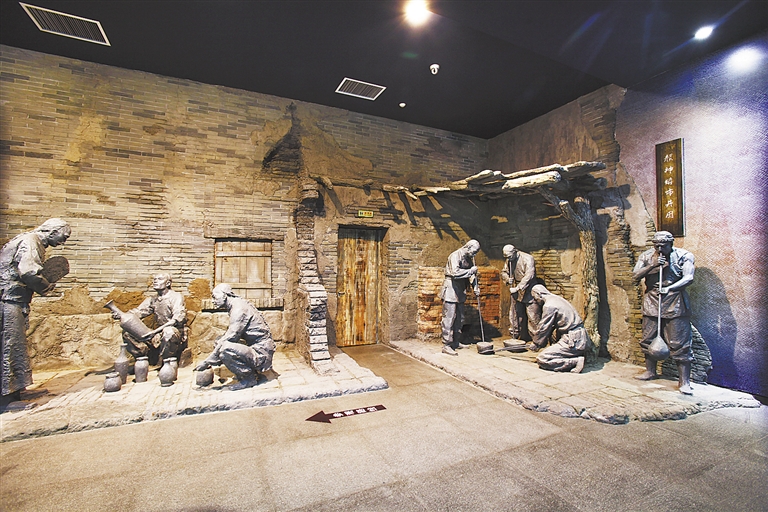
Qinhuangdao Yaohua Glass Factory Site.

